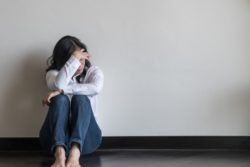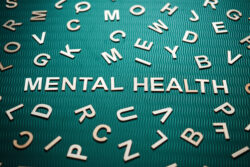Grief vs. Depression: Understanding How They Differ

Although they appear similar on the surface, depression and grief are two very different conditions. The two are sometimes confused due to overlapping symptoms, or because it can be difficult to define when a period of grieving truly begins or ends. This is why The Diagnostic and Statistical Manual of Mental Disorders (DSM-5) recognizes that the two conditions are often related. In some instances, grief can lead to clinical depression. Additionally, individuals who have depression can experience grief.
It’s crucial, however, to establish and recognize the differences between grief and depression, which can help identify when professional help may be needed.
What is Grief?
The Mayo Clinic explains grief as a distinct or overwhelming sadness, one that typically stems from a significant feeling of loss. This can result from the death of a loved one, the occurrence of a major ailment or injury, the loss of a job or the ending of an important personal relationship.
Although it may last for months or even years (it’s different for everyone), grief is considered a temporary condition. There are several identifiable stages that usually occur as part of grieving, recognized as denial, anger, bargaining, depression and acceptance. Each phase is instrumental in the healing process.
What is Depression?
Where grief is said to have a more defined beginning and conclusion, depression is a clinical, long-term disorder with no clear periodic boundaries. While it can be cyclical in nature, depression itself is a long-term condition. The Mayo Clinic defines this condition as a major mood disorder, one defined by persistent sadness, anger, and/or hopelessness. Similar to grief, depression can affect individuals of any age, and it can impact physical health or interfere with normal daily activities.
Separating Symptoms
Grief and depression do share many symptoms, and an expected period of grieving can certainly develop into a longer-term depressive state. Recognizing the commonalities and differences, however, can be crucial to knowing when to seek outside assistance.
Both conditions are marked by acute sadness, and often associated with irritability, anger, and inability to move past the initial trauma. Each can lead to symptoms such as insomnia or weight loss, and in extreme cases, can encourage thoughts or efforts toward self-harm. There are several factors, however, which separate depression into its own category.
A person doesn’t necessarily experience depression due to any specific life event. It is a more persistent emotional state, one often marked by illogical feelings of guilt, worthlessness, and disinterest in normal daily activities. Depression can also manifest physically in the form of fatigue, aggression or delusions, and it typically does not subside without some form of intervention.
An individual with depression will focus inward on themselves. They will experience negative feelings, like worthlessness and self-doubt. On the other hand, someone experiencing grief is focused on their loss or an external circumstance.
Seeking Help
In the conversation of grief vs. depression, it’s crucial to emphasize the need for understanding. For the individual who is suffering, any distinction is purely semantic; the effects are equally challenging, and the impact on one’s life is undeniable. Support from friends and family remains invaluable, regardless of any specific diagnosis.
When a situation calls for professional support, mental health services at Pyramid Healthcare provide help for grief and depression. We provide an ideal clinical setting for evaluation and treatment of for adolescents and adults.
Although they appear similar on the surface, depression and grief are two very different conditions. The two are sometimes confused due to overlapping symptoms, or because it can be difficult to define when a period of grieving truly begins or ends. This is why The Diagnostic and Statistical Manual of Mental Disorders (DSM-5) recognizes that the two conditions are often related. In some instances, grief can lead to clinical depression. Additionally, individuals who have depression can experience grief.
It’s crucial, however, to establish and recognize the differences between grief and depression, which can help identify when professional help may be needed.
What is Grief?
The Mayo Clinic explains grief as a distinct or overwhelming sadness, one that typically stems from a significant feeling of loss. This can result from the death of a loved one, the occurrence of a major ailment or injury, the loss of a job or the ending of an important personal relationship.
Although it may last for months or even years (it’s different for everyone), grief is considered a temporary condition. There are several identifiable stages that usually occur as part of grieving, recognized as denial, anger, bargaining, depression and acceptance. Each phase is instrumental in the healing process.
What is Depression?
Where grief is said to have a more defined beginning and conclusion, depression is a clinical, long-term disorder with no clear periodic boundaries. While it can be cyclical in nature, depression itself is a long-term condition. The Mayo Clinic defines this condition as a major mood disorder, one defined by persistent sadness, anger, and/or hopelessness. Similar to grief, depression can affect individuals of any age, and it can impact physical health or interfere with normal daily activities.
Separating Symptoms
Grief and depression do share many symptoms, and an expected period of grieving can certainly develop into a longer-term depressive state. Recognizing the commonalities and differences, however, can be crucial to knowing when to seek outside assistance.
Both conditions are marked by acute sadness, and often associated with irritability, anger, and inability to move past the initial trauma. Each can lead to symptoms such as insomnia or weight loss, and in extreme cases, can encourage thoughts or efforts toward self-harm. There are several factors, however, which separate depression into its own category.
A person doesn’t necessarily experience depression due to any specific life event. It is a more persistent emotional state, one often marked by illogical feelings of guilt, worthlessness, and disinterest in normal daily activities. Depression can also manifest physically in the form of fatigue, aggression or delusions, and it typically does not subside without some form of intervention.
An individual with depression will focus inward on themselves. They will experience negative feelings, like worthlessness and self-doubt. On the other hand, someone experiencing grief is focused on their loss or an external circumstance.
Seeking Help
In the conversation of grief vs. depression, it’s crucial to emphasize the need for understanding. For the individual who is suffering, any distinction is purely semantic; the effects are equally challenging, and the impact on one’s life is undeniable. Support from friends and family remains invaluable, regardless of any specific diagnosis.
When a situation calls for professional support, mental health services at Pyramid Healthcare provide help for grief and depression. We provide an ideal clinical setting for evaluation and treatment of for adolescents and adults.






